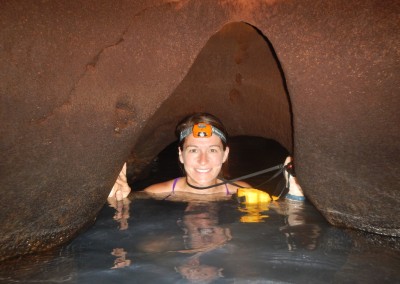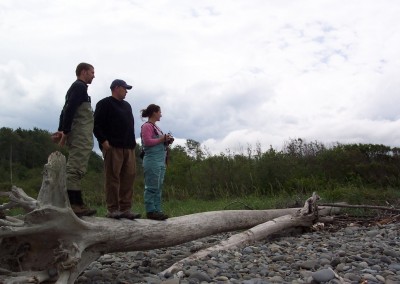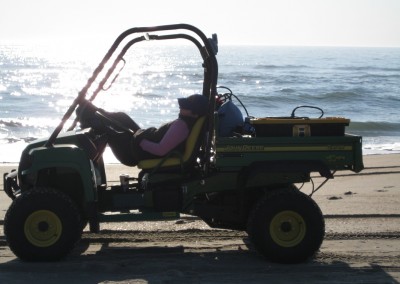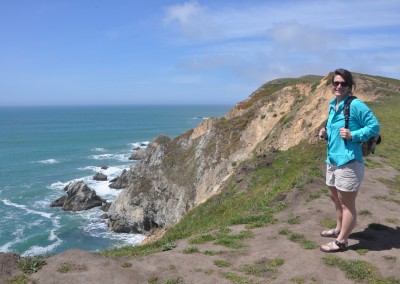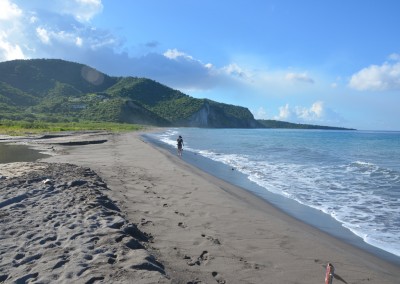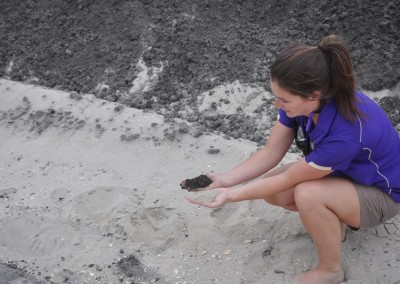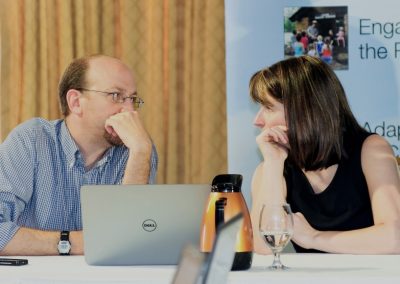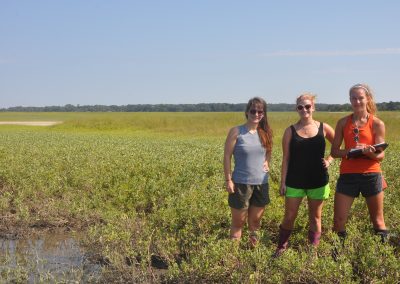Program for the Study of Developed Shorelines
Science. Policy. Education. Outreach. Coastal.
Katie McDowell Peek, Coastal Research Scientist, P.G.
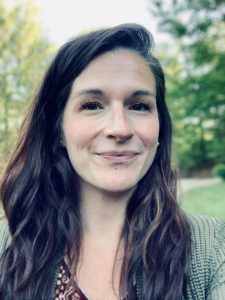 Katie McDowell Peek, P.G.
Katie McDowell Peek, P.G.
Coastal Research Scientist
Phone: 828.227.2790
Email: kmcdowell@wcu.edu
Old Student Union
Western Carolina University
Cullowhee, NC 28723
Katie McDowell Peek is a Coastal Research Scientist at the Program for the Study of Developed Shorelines (PSDS) at Western Carolina University (WCU) and a Licensed Professional Geologist in the state of North Carolina. PSDS is a research and policy outreach center serving the global coastal community; the primary mission of PSDS is to conduct scientific research into coastal processes and to translate that science into management and policy recommendations through a variety of professional and public outreach mechanisms.
Peek is a local to the mountains of western North Carolina, but has spent significant time along the coastlines of the U.S. She received a BS degree in Geology from Western Carolina University and a MS degree in Coastal Geology from East Carolina University, where her research focused on the paleoenvironmental history of the Cape Hatteras region of coastal North Carolina. Peek has also obtained graduate certificates from North Carolina State University in Geographic Information Systems (GIS) and Climate Adaptation.
Since joining PSDS in 2010, Peek has been the lead coastal scientist on several National Park Service vulnerability projects and has worked with over 100 coastal parks across the U.S. Peek and the PSDS team have completed a climate change vulnerability analysis of marine and coastal habitats at Cumberland Island National Seashore, and a natural hazards vulnerability assessment at Yellowstone National Park. She is one of the lead scientists on a National Park Service project building a coastal hazard and sea-level rise vulnerability assessment protocol being utilized by parks across the nation.
Peek has also been involved in numerous other projects, including research on the controls of hurricane storm surge, the effects of sea-level rise on communities and regions, the impacts beach sand mining on the island of Montserrat in the West Indies, and a community resilience study for Horry County, South Carolina. She teaches environmental geology at WCU and has co-instructed a geology field course on San Salvador Island in the Bahamas.
Research Interests:
- Natural Hazard Vulnerability Assessments
- Coastal Processes
- Storm Surge & Tropical Storms
- Sea-level Rise
- Flood Exposure & Resilience
- Climate Change Adaptation
- Geographic Information Systems
- Hazard Mapping
Education:
- Licensed Professional Geologist in NC
- Graduate Certificate in Climate Adaptation, 2021; North Carolina State University
- Graduate Certificate in Geospatial Information Science, 2017; North Carolina State University
- M.S. Geology, 2009; East Carolina University
- B.S. Geology, 2007; Western Carolina University
Select Publications & Presentations:
Peek, K.M., B.R. Tormey, H.L. Thompson, and R.S. Young. 2022. Coastal hazards & sea-level rise asset vulnerability assessment protocol: Updated project description & methodology. Natural Resource Report NPS/NRSS/CCRP/NRR—2022/2427. National Park Service, Fort Collins, Colorado. https://doi.org/10.36967/2293653.
Peek, K.M., B.R. Tormey, H.L. Thompson, R.L. Beavers, A.C. Ellsworth, and C. Hawkins Hoffman (editors). 2022. Climate change vulnerability assessments in the National Park Service: An integrated review for infrastructure, natural resources, and cultural resources (revised). Natural Resource Report NPS/NRSS/CCRP/NRR—2022/2438. National Park Service, Fort Collins, Colorado. https://doi.org/10.36967/2293997
Peek, K.M, Schupp, C., and A. Babson. 2016. Chapter 8 Protecting Infrastructure: Costs and Benefits. In: Beavers, R.L., A.L. Babson, and C.A. Schupp [eds.]. 2016. Coastal Adaptation Strategies Handbook. NPS 999/134090. National Park Service. Washington, DC. https://www.nps.gov/subjects/climatechange/upload/NRSS_CASH_Chp8_111016.pdf
Beavers, R., Norton, S., Eissenberg, M., Peek, K.M., Young, R.S., and S. Quinn. 2016. Chapter 6 Facility Management. In: Beavers, R.L., A.L. Babson, and C.A. Schupp [eds.]. 2016. Coastal Adaptation Strategies Handbook. NPS 999/134090. National Park Service. Washington, DC. https://www.nps.gov/subjects/climatechange/upload/NRSS_CASH_Chp6_111016.pdf
Peek, K.M., Coburn, A., Stafford, E.S., Tormey, B., Young, R.S., Thompson, H., Bennett, L., and A. Fowler. 2015. Marine Vulnerability Assessment of Cumberland Island National Seashore: Determining the vulnerability of marine habitats at Cumberland Island National Seashore to climate change stressors. Natural Resource Report NPS/CUIS/NRR—2016/1281. National Park Service, Fort Collins, Colorado. https://irma.nps.gov/DataStore/Reference/Profile/2231967
Peek, K. M., Young, R.S., Beavers, R. L., Hoffman, C. H., Diethorn B. T., and S. Norton. 2015. Adapting to climate change in coastal national parks: Estimating the exposure of FMSS-listed park assets to 1 m of sea-level rise. Natural Resource Technical Report NPS/NRSS/GRD/NRTR—2015/961. National Park Service, Fort Collins, Colorado. https://irma.nps.gov/Datastore/DownloadFile/522630
Griffith, A.D., Coburn, A., Peek, K.M. and R.S. Young. 2014. Hurricane Sandy: did beach nourishment save New Jersey? In Farmer, E.C. & Bennington, J.B. (Eds.), Learning from the Impacts of Superstorm Sandy (p 57-69). Elsevier. http://www.sciencedirect.com/science/book/9780128015209
Peek, K. M. and R.S. Young. 2013. Understanding the controls on storm surge through the building of a national storm surge database. Journal of Coastal Research, v. 29, 17-24. http://www.jcronline.org/doi/abs/10.2112/JCOASTRES-D-12-00249.1
Program for the Study of Developed Shorelines
Old Student Union
Western Carolina University
Cullowhee, NC 28723


